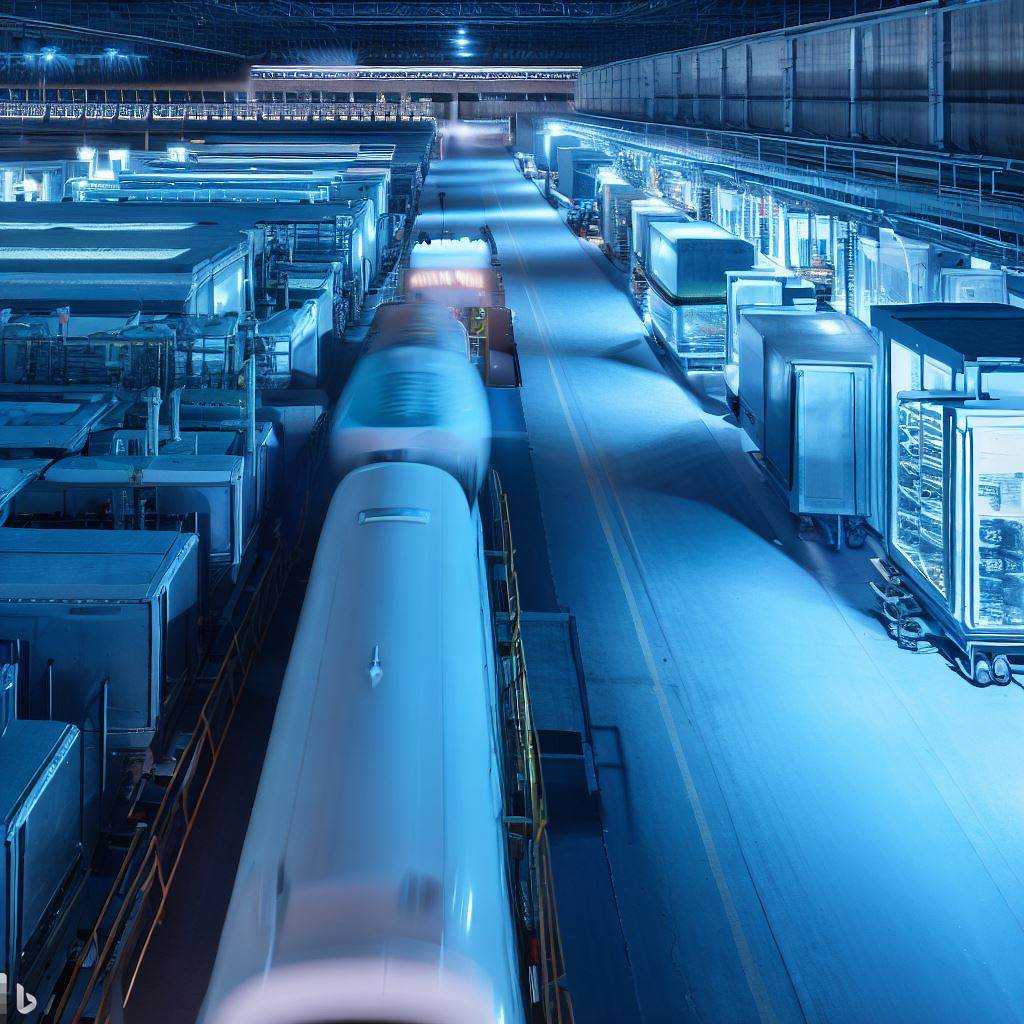ERP for Cold Storage and Refrigeration Transport Facilities
Welcome to the realm of cold storage and refrigeration, where the careful preservation of temperature-sensitive goods is of paramount importance. Within this critical industry lies a series of challenges that demand innovative solutions to optimize operations and ensure the safe transport and storage of perishables. Discover how ERP for Cold Storage and Refrigeration Transport Facilities emerge as the guiding force, empowering these businesses to optimize energy consumption, maintain consistent temperatures, and streamline equipment maintenance.
Embrace the possibilities that ERP solutions unlock for your cold storage facility. From efficient inventory management and demand forecasting to ensuring compliance with stringent regulations and embracing eco-friendly practices, ERP technology is designed to propel your operations to new heights of efficiency, safety, and sustainability.
The cold storage and refrigeration transport facilities face several pain points and bottlenecks due to the critical role they play in preserving temperature-sensitive goods. However, implementing an Enterprise Resource Planning (ERP) system can help address some of these challenges and provide effective solutions.
Benefits of ERP Implementation Cold Storage and Refrigeration Transport Facilities
Energy Costs:
ERP systems with energy management modules can monitor and optimize energy consumption in cold storage facilities. They can identify energy-saving opportunities, reduce wastage, and lower operational costs.
Temperature Fluctuations:
ERP solutions can integrate with real-time monitoring sensors to ensure consistent temperatures. If any fluctuations occur, the system can promptly alert maintenance personnel for immediate action.
Equipment Breakdowns:
ERP software with preventive maintenance features can schedule routine maintenance checks for refrigeration units and cooling systems. This minimizes the risk of unexpected breakdowns and ensures smooth operations.
Capacity Constraints:
ERP systems assist in managing cold storage capacity efficiently by optimizing space utilization. Automated inventory tracking helps in better allocation of available space and forecasting future storage needs.
Seasonal Demand:
ERP solutions with demand forecasting capabilities help cold storage facilities plan for peak demand periods accurately. By predicting demand patterns, facilities can optimize resource allocation and streamline operations.
Compliance and Regulatory Requirements:
ERP systems can automate compliance tracking and documentation, ensuring that cold storage facilities adhere to stringent regulations and safety standards. This minimizes the risk of non-compliance penalties.
Food Safety Concerns:
ERP software can enforce standard operating procedures for food safety and hygiene in cold storage facilities. It provides checklists and reminders for staff to follow the necessary protocols, reducing the risk of contamination.
Inventory Management:
ERP solutions with inventory management modules optimize inventory levels and rotation. They provide real-time visibility into stock levels, expiration dates, and movement, reducing spoilage and waste.
Last-Mile Delivery Challenges:
ERP systems with route optimization features can optimize last-mile delivery for refrigerated transport. This ensures timely deliveries and maintains the desired temperature during transit.
See How My Company Can Massively Automate Your Company Departments
Custom CRM Development – For Organizations to manage its Customer Interactions in addition to Sales, Marketing, Billing, Products, Services, Contacts, Customer Support, among other things.
Custom ERP Development – For Manufacturers to handle BOM, Quotation, Order, RFQ, PO, SOA, Manufacturing, Trading, Inventory, Quality Control, Logistics, Shipments, and so on.

Environmental Impact:
ERP solutions can help cold storage facilities adopt environmentally friendly practices by optimizing energy usage and supporting the use of eco-friendly refrigerants.
Traceability and Tracking:
ERP systems with traceability features maintain a comprehensive record of temperature-sensitive products throughout the supply chain. This ensures traceability and product integrity, especially for pharmaceuticals and vaccines.
Skilled Labor and Training:
ERP solutions can assist in managing employee training records and certifications. They can schedule and track training sessions, ensuring that the workforce remains skilled and updated on equipment maintenance and operation.
By implementing an ERP system tailored to the cold storage and refrigeration industry, facilities can effectively mitigate challenges, optimize operations, and ensure the safe preservation and transport of temperature-sensitive goods. This integration of technology not only streamlines logistics processes but also contributes to the overall efficiency, compliance, and sustainability of cold storage and refrigeration facilities.
